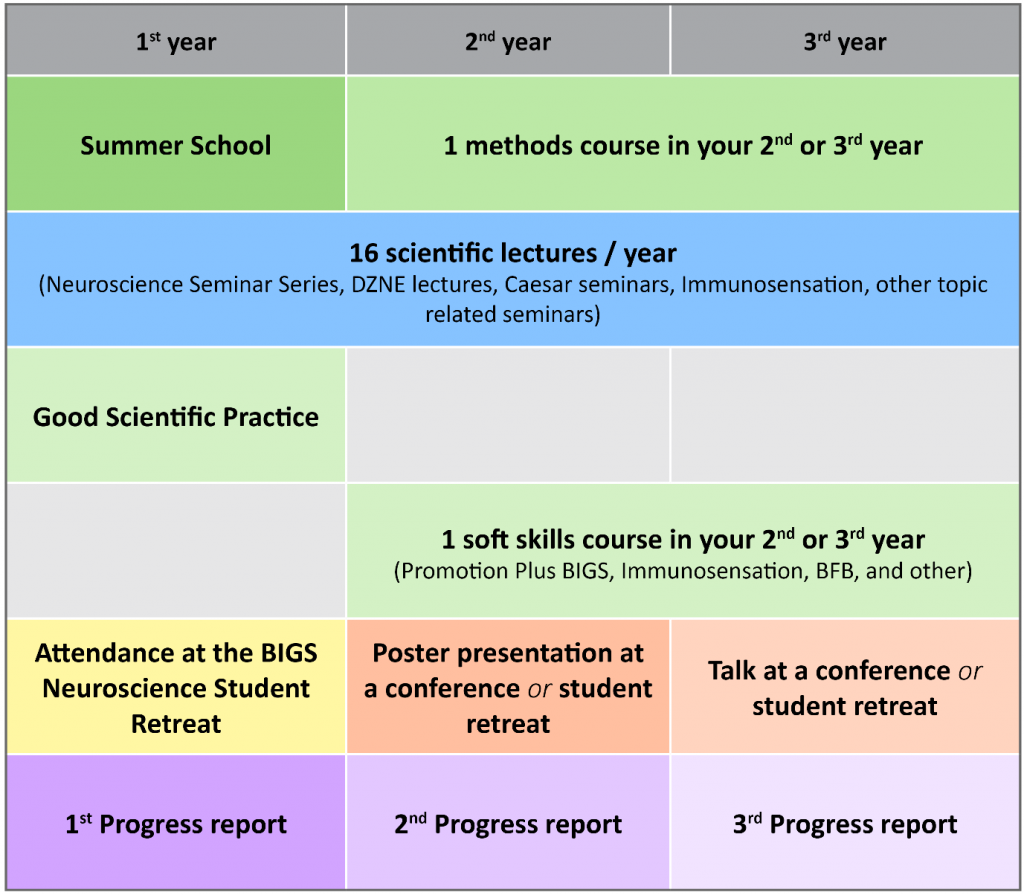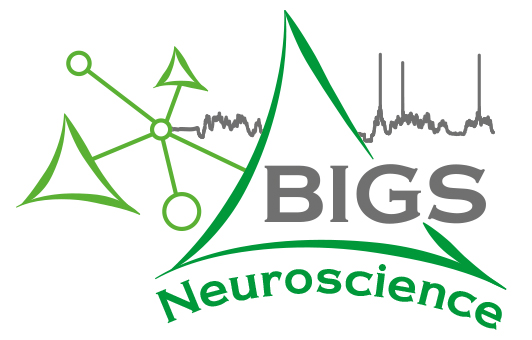Program Overview
BIGS (Bonn International Graduate School) Neuroscience is committed to providing a top-level, internationally competitive program in the rapidly developing field of neuroscience. The school focuses on dissecting the molecular and cellular mechanisms underlying complex behavior, and applying these insights to better understand central nervous system disorders.
Get more information about our research fields and involved research groups!
BIGS Neuroscience aims to ensure that your time as a graduate student meets your needs and expectations, trains you for leadership roles in academic research and elsewhere, and enables you to make the most of your enthusiasm for neuroscience research.
For a quick overview of the curriculum please click here.
Participating Faculties and Institutes
This interdisciplinary school includes scientists from the Faculty of Mathematics and Natural Sciences, the Faculty of Medicine, the Faculty of Arts, the German Center for Neurodegenerative Diseases in the Helmholtz Association and The Max Planck Institute for Neurobiology of Behavior – caesar
Detailed information about the faculties involved and the various degrees (Dr. rer. nat., PhD, MD/PhD, Dr. phil.) that can be obtained can be found in the Rules and Regulations section.
BIGS Neuroscience Educational Program
The doctoral program is designed to give you the opportunity to expand your general research skills as well as your personally transferable skills. Training measures are complemented by a mentoring and reporting program, comprehensive measures for career development and support for scientific networking. In the following we would like to introduce the individual training components to you.
Summer School: The goal of the summer school is to familiarize BIGS Neuroscience PhD students with current research topics and methods at an early stage of their careers and to introduce them to the Neuroscience research and community in Bonn.
Methods courses: BIGS Neuroscience offers a wide range of courses that focus primarily on covering practical laboratory skills and basic neuroscience knowledge. Topics include imaging, electrophysiology, genetics, physiology, cognitive neuroscience, cell biology, and other essential skills/techniques (e.g. programming, flow cytometry, mass spectrometry)
Soft Skills courses: Participation in soft skill courses is designed to help doctoral students prepare for a successful career following their doctorate. Soft Skills courses offer doctoral students the opportunity to improve their academic and extracurricular skills.
Seminars: BIGS Neuroscience doctoral students need to attend scientific seminars to stay up to date with the technologies and latest happenings in science.
Good Scientific Practice: Compliance with the principles of good scientific practice is essential in all scientific work. The principles (based on DFG) are taught in a one-day course to doctoral students at an early stage of their promotion.
Student retreats and conferences: Interaction and cooperation through regular retreats, student conferences and social events is a major goal of BIGS Neuroscience.
BIGS Neuroscience Thesis Award and Travel Grants
A BIGS Neuroscience Thesis Award will be awarded each year for the best PhD thesis submitted by BIGS Neuroscience doctoral students. Prerequisite for receiving the prize is successful participation in BIGS Neuroscience.
BIGS Neuroscience is pleased to support BIGS Neuroscience graduate students with travel grants for attendance at renowned international conferences or innovative methods courses.
Get further information about the submission procedure in the Awards and Travel Grants section.
Teaching Committee
The Teaching Committee is responsible for the design of the curriculum as well as for the regular review and continuous improvement of the individual components. The committee identifies the needs and interests of the participants and adapts the curriculum and course offerings to these requirements. The committee monitors the quality of the courses on offer and develops new courses to meet the needs of doctoral students. See the current Teaching Committee members in the Organizational Structure section.


